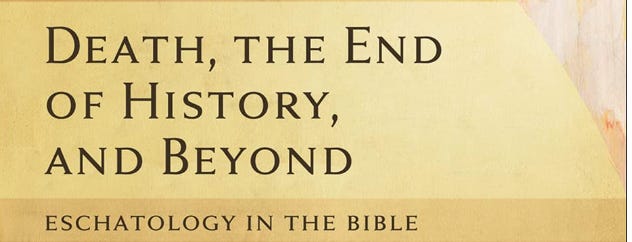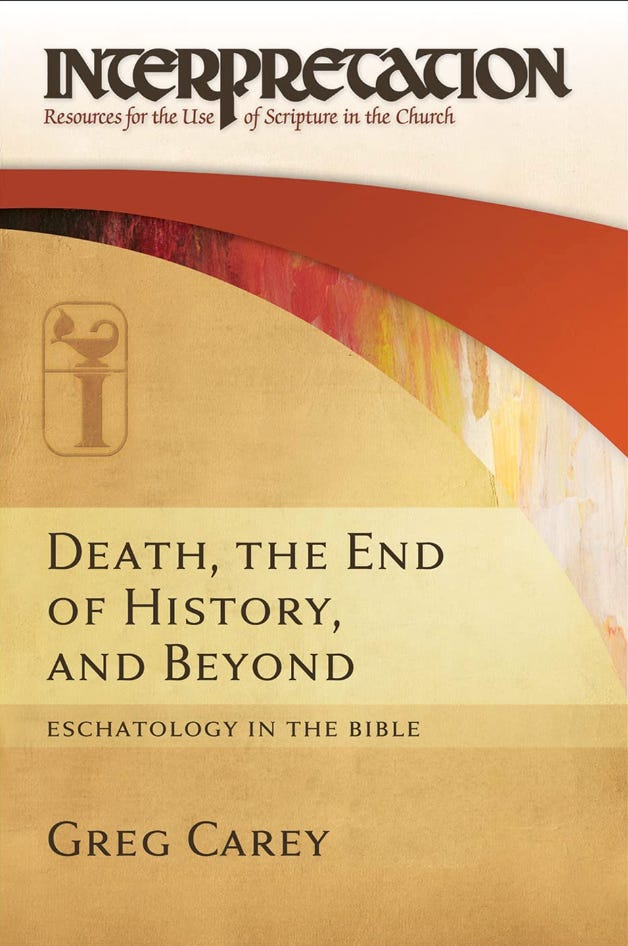If I’ve heard this question, I’ve heard it a 100x. What did the Egyptians, Romans, Greeks, you name it, believe about heaven? Notice how that questions is framed. It assumes everyone had a view of the future, that is about an individual’s future after death. It assumes that ancient folks believe in heaven, with the only issue worth mopping up is what kind of heaven they believed in.
But heaven as framed in that question works only for Christians with, most likely, a very individualistic view of heaven (will I go to heaven when I die, and get my rewards, and the like). The Christian tradition has developed a strong conviction of heaven based on the bodily resurrection of Jesus and based on the conviction that all believers, and some expand what believers means, will be raised, and based on the belief that believers enter into the presence of God immediately upon death, awaiting only their reunion with the body at the general resurrection.
So, when that question is asked, it biases the whole question in a Christian direction. By the way, E.P. Sanders was criticized for framing the pattern of religion he found in Judaism on a Protestant theology. So, our framing questions matter.
They matter immensely to Greg Carey in his new book, Death, the End of History, and Beyond: Eschatology in the Bible. Which is why he has a chapter on “Eschatology in the Ancient Near East and the Mediterranean.” The gist of this chapter, a well-deserved and evidence-based gist, is that ancient eschatologies are best summarized as a bewildering diversity. This chapter is an extraordinary sketch – so many ideas to contain in a chapter – and for me the bewildering diversity presented is presented in a way that makes one feel bewildered by the diversity. An effective rhetoric, if not shrewd. Greg’s chapter has a massive analogy in Alan Segal’s Life after Death book, one of the best studies ever on the afterlife in the ancient world.
It’s not hard to get lost in Judaism’s famous 1 Enoch and The Epic of Gilgamesh and Egyptian ideas and Greek speculations and Persian eschatologies and Zoroastrianism’s contribution to emerging Jewish eschatologies.
Was there a postmortem existence? Mostly.
Was it better than the present life? Rarely.
Was it better for the good than for the bad? Sometimes.
Was death feared? Almost always.
Was someone to live now in light of that postmodern not-so-great existence? At times, at times not.
Was it more social than individual? Very much so.
Was it like Judaism? At times.
Was the Jewish or Christian eschatology like Plato? Which Plato? Like Aristotle? Not so much.
Was the ancient diversity like early Christian eschatology? At times.
Were Judaism’s views and Christianity’s views based on views in Egypt or Greece or Persia? Somewhat, but not very often in a direct manner.
It’s bewildering, isn’t it?! It’s diverse. Ancient eschatologies were a bewilderingly diverse imagination of what the postmodern world could be like. There was no such thing as the ancient or the Greek or the Jewish eschatology.
The Christian frameworks of eschatology, no surprise, also show diversity but their diversity is not simply the diversity of any of these other sources. Thus, “we may anticipate diversity among the biblical witnesses, while little that ancient Israelites, Jews, and Christians believed would have completely shocked their neighbors.”
Add to this how ancient groups understood the plot and plan and course of history. Order at times matched by disorder; periods of history at times matched by chaos; determinism at times conquered by human agency. And all the time we need to remember who was writing those histories that seemed to map out some plan, even a divine plan, for the course of history? He who writes the story controls the glory.
Here’s Greg Carey’s summary paragraph:
This complexity means that we can identify lines of continuity between biblical expressions and those of cognate cultures, but it's often impossible to trace lines of influence and dependence. It's quite likely that Persian views of history contributed mightily to the emergence of Jewish and then early Christian apocalypticism. That influence, the notion that history amounted to a conflict between good and evil, with good achieving complete victory in the end, proved decisive for the apocalyptic eschatology that shaped much of ancient Judaism and earliest Christianity. But other sensibilities seem to have floated around with no boundaries. An Egyptian, Mesopotamian, Canaanite, Israelite, and Greek societies alike, we encounter a general assumption that a person's postmortem self is a diminished version of their living self, something like a shade or spirit. We also come across the hope that a truly glorious afterlife is available to some people, perhaps theoretically for all. Some people regarded death as so, well, grim that the prudent course is to make the most of this life, while others live so as to optimize their postmortem chances. This change of opinions manifests itself in biblical traditions.
Those lines bewilder a bit because it was bewildering.






Fascinating study. Did the author use a table at some point as an overview? I’m really interested to see where he takes this. Also, wasn’t Augustine a follower of a Persian religion before his conversion to Christianity?